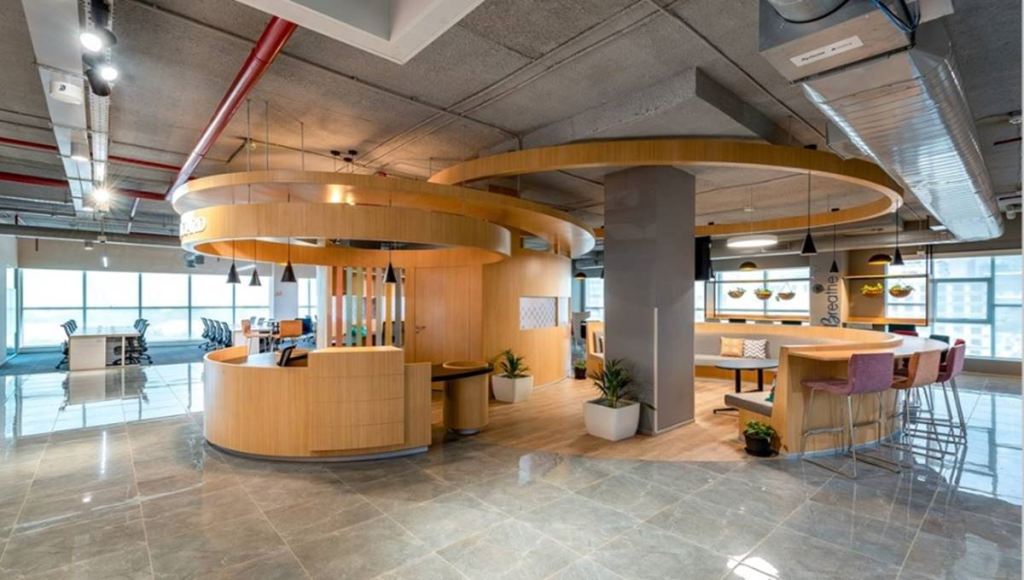‘Flexibility’ has become the key factor for businesses worldwide, from high-growth startups to established companies. They are increasingly using technology to remain agile in response to the rapidly evolving market. Particularly the large technology giants view this as an opportunity to tap new opportunities while keeping costs in check. This shift is also witnessed in their real estate requirements.
Several companies are moving to managed workspace platforms that offer them an enhanced office experience and enable them to unleash their creativity. From providing the flexibility to plan one’s space to collaboration and breakout zones and recreational areas, managed workspace platforms have transformed and democratised office spaces. These become essential to fulfil the workforce’s evolving requirements and play a pivotal role in attracting great talent.
According to an industry report, the share of co-working spaces stood at 20 per cent in the first half of 2022 as against 6 per cent in the first half of 2021 in the overall net office space absorption across the top seven cities. The highlight of this was the share of the IT/ITeS sector – India’s leading office demand driver – shifting to managed workspace platforms from regular long-term lease offices by as much as 100 basis points, which is in stark contrast to previous years.
Also Read: MF Investment: Should you invest in multiple mutual funds?
The very structure and economics of managed workspace platforms enable them to be present across the length and breadth of a city and not just be concentrated in the major business districts or city centres which are the employment hubs. Along with it, the launch of metro rail in cities such as Bengaluru, Hyderabad and Pune is making commuting simpler and even more accessible for employees, enabling easy commuting to the nearest managed workspace platforms.
This also reduces work disruption in a natural or man-made catastrophe that doesn’t allow employees to travel to their main offices but can operate out of satellite offices. It has also become a prime factor for established IT/ITeS companies opting for managed workspace platforms, enabling them to operate satellite offices across the city and bringing greater comfort and flexibility for the employees.
Furthermore, as companies make their inroads into developing cities like Indore, Ahmedabad and Jaipur, managed workspace platforms have emerged as a much-needed partner that helps them expand their physical presence wherever their employees are. This has become important as employees increasingly want to work closer to their homes. Managed workspace platforms have become that differentiator, enabling companies to attract and retain talent in an evolving world.
Also Read: Housing costs: Tips to reduce your rental expenses
This democratisation of the new-age office space by managed workspace platforms has led to the emergence of a new office experience which focuses on fostering creativity and innovation, cultivating mindfulness and building vitality in the workplace. This assumes significance in the current era as many companies are prioritising employees’ mental well-being to bring out the best in them. Here, managed workspace platforms have been at the forefront of reinventing the traditional offices usually identified with desks and chairs.
There are also definite cost benefits for established companies when opting for a managed workspace platform. Companies can operate in an asset-light manner and expand and consolidate their presence seamlessly across cities instead of making huge, fixed investments in regular office spaces. With a focus on core business activities from non-core, this is also leading to companies choosing properties with managed workspace platforms as their headquarters with the array of services and benefits it offers to the employers and employees.
Managed workspaces are redefining commercial real estate in India. From enabling the booking of office space at the click of a button to building an aesthetically pleasing workspace that drives innovation and creativity and takes care of the evolving needs of the new age companies and their employees through innovative F&B, sports, and entertainment offerings. And with the increasing demand for managed workspaces, it’s safe to assume the future of commercial real estate will be flexible managed workspaces that fulfil the evolving demands of occupiers and their employees while creating a shared value for ecosystem partners.
(By Neetish Sarda, Founder, Smartworks)

